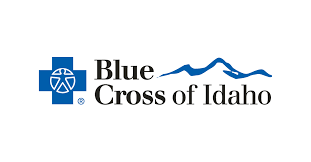A Guide to Three Types of Medicare Advantage Plans
You’ve got three main types of Medicare Advantage plans to choose from: Health Maintenance Organization (HMO), Preferred Provider Organization (PPO), and Special Needs Plans (SNPs). HMO plans require you to select a primary care doctor and limit care to network providers, aiming to offer cost-effective healthcare.
PPO plans give you more flexibility, allowing you to see doctors in or out of network without a referral, though out-of-network care comes at a higher cost. SNPs provide highly personalized care with benefits and coordination tailored to individuals with specific needs.
Each plan caters to different healthcare preferences, ensuring you can find one that fits your situation. Uncovering the nuances will better equip you to make an informed decision
Contact Us
Key Takeaways
- Medicare Advantage Plans include Health Maintenance Organization (HMO) plans, focusing on network-based, cost-effective care.
- Preferred Provider Organization (PPO) plans offer flexibility in choosing healthcare providers, covering both in- and out-of-network services.
- Special Needs Plans (SNPs) are tailored for individuals with specific chronic conditions or circumstances, offering customized care and benefits.
- Each plan type varies in structure, provider freedom, and out-of-pocket costs, catering to different healthcare needs and preferences.
- HMO and PPO plans emphasize preventive care, while SNPs provide specialized services for eligible members with unique healthcare requirements.
Exploring HMO Plans
When exploring Health Maintenance Organization (HMO) plans, it’s crucial to understand that you’ll need to select a primary care doctor to coordinate all your healthcare services within the plan’s network. This requirement is fundamental to how HMOs function, emphasizing the role of primary care in managing your health. By design, these plans are structured to offer you a cost-effective way to access healthcare, primarily because they limit care to providers within their network, thereby reducing out-of-pocket expenses.
Additionally, you’ll find that HMO plans are keen on preventive care and wellness programs. This focus not only aims to keep you healthy but also assists in managing chronic conditions more effectively. It’s a proactive approach, ensuring that health issues are addressed before they escalate into more serious conditions.
Moreover, care coordination is a priority in HMO plans. Your primary care doctor acts as a gatekeeper, guiding you through the healthcare system. Should you require specialized care, a referral from your primary care doctor is necessary. This layer of coordination ensures that all your healthcare providers are on the same page, which can significantly enhance the efficiency and quality of your care.
In a nutshell, Medicare Advantage HMO plans offer a structured, cost-effective way to manage your health, with a strong emphasis on preventive care and care coordination.
Understanding PPO Plans
Diving into Preferred Provider Organization (PPO) plans, you’ll appreciate the flexibility they offer in choosing healthcare providers. Unlike some other types of Medicare Advantage plans, a PPO plan doesn’t require you to select a primary care physician or obtain a referral to see specialists. This means you have the liberty to consult specialists as you deem necessary without jumping through additional hoops.
One of the greatest advantages of a PPO plan is the extensive provider network. While you’re encouraged to use providers within this network for lower out-of-pocket costs, you’re not restricted to them. Should you choose to receive care from outside the network, your PPO plan will still offer coverage, albeit at a higher cost. This balance provides a blend of cost savings and flexibility.
Moreover, PPO plans often include prescription drug coverage, aligning with Part D of Medicare. This integration simplifies your healthcare coverage by bundling medical and prescription drug benefits under one plan. As you navigate your healthcare options, understanding the specifics of a PPO plan—from its flexible approach to provider choice and specialists to its coverage of out-of-network care and prescription drugs—will help you make informed decisions about your Medicare Advantage coverage.
Special Needs Plans Overview
Special Needs Plans (SNPs) offer a customized approach to Medicare Advantage, catering specifically to individuals with certain chronic conditions or tailored healthcare needs. These plans stand out because they provide tailored benefits and care coordination designed to meet the unique healthcare requirements of their members. If you’re navigating the complexities of healthcare due to a chronic condition or specific healthcare needs, SNPs could be an optimal solution.
There are three main types of SNPs: Chronic Condition SNPs, Dual-Eligible SNPs, and Institutional SNPs. Each type focuses on a different group, whether it’s those with specific chronic conditions, individuals who are dual-eligible for Medicare and Medicaid, or those residing in institutional settings. To join a Special Needs Plan, you must meet the eligibility criteria, which might include having a qualifying chronic condition or being dually eligible.
SNPs often offer
specialized services, from tailored provider networks to benefits specifically designed to manage complex healthcare needs. This ensures that you receive care that’s not just comprehensive but also
highly personalized. Understanding the nuances of these plans, from care coordination to specialized services, can empower you to make informed decisions about your healthcare in a landscape that’s often challenging to navigate.
Factors to Consider When Choosing The Right Medicare Advantage Plans
It can be intimidating to navigate the plethora of healthcare alternatives when Medicare enrollment draws near. Medicare Advantage plans are one option that provides extensive coverage over and beyond Original Medicare. But choosing the best plan necessitates thoughtful analysis, particularly when contrasting Special Needs Plans (SNPs), Preferred Provider Organizations (PPOs), and Health Maintenance Organizations (HMOs). This post will assist you in selecting the Medicare Advantage plan that most closely matches your healthcare requirements and preferences by guiding you through the decision-making process.
- Healthcare Needs: Evaluate your current health status and anticipated medical needs to determine which plan type offers the most suitable coverage.
- Provider Network: Consider the availability of preferred healthcare providers, specialists, and hospitals within each plan's network.
- Prescription Drug Coverage: Assess the formulary and cost-sharing requirements for prescription medications, particularly if you rely on specific drugs.
- Cost: Compare premiums, deductibles, copayments, and coinsurance across different plan options to determine affordability.
- Additional Benefits: Take into account extra benefits such as dental, vision, hearing, fitness programs, and telehealth services offered by each plan.
Contact Chris Antrim Insurance for Your Medicare Advantage Plans
Navigating the world of Medicare Advantage plans is akin to setting sail in a vast ocean of healthcare options. You’ve got your HMOs, acting as your compass, guiding you within the confines of their network. PPOs, on the other hand, are like having a map with more freedom to explore out-of-network territories. And Special Needs Plans are the lighthouses, specifically designed for those navigating through specific health conditions. Choosing the right vessel—HMO, PPO, or SNP—ensures a smoother journey on your healthcare voyage.
Understanding the three types of Medicare Advantage plans provides beneficiaries with valuable insight into their healthcare options. By exploring Health Maintenance Organizations (HMOs), Preferred Provider Organizations (PPOs), and Private Fee-for-Service (PFFS) plans, individuals can make informed decisions tailored to their unique healthcare needs and preferences. This guide empowers beneficiaries to navigate the complexities of Medicare Advantage, ensuring they access the coverage that best suits their circumstances and priorities.












